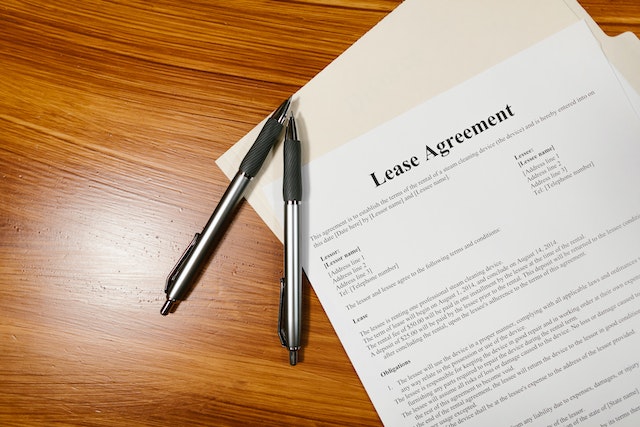Why Pet Screening Is Always a Good Idea

Pet ownership in the United States has significantly increased over the years, and the demand for pet-friendly rental units is on the rise. Allowing pets on your rental might be tempting, as pet-friendly properties attract more prospective tenants, creating higher revenue and fewer vacancies. However, allowing pets on your rental can be risky.
Pets can cause issues such as property damage, noise complaints, and even evictions. Luckily, you can avoid these potential risks with an effective pet screening process.
If you want to turn your rental into a pet-friendly unit but don’t know where to start, you’ve come to the right place! This article will dive into everything you should know about pet screening.
What Is Pet Screening?
The pet screening process is similar to tenant screening. It involves assessing a tenant’s pet to determine whether they’re a good fit for your rental. This screening process should be applied to all pets before being allowed on your property. It’s advisable to perform a pet screening every year.
What Are the Benefits of Pet-Friendly Rentals?
Turning your property into a pet-friendly rental comes with a number of benefits. Here are three of them:
Higher Market Value
Pet-friendly rentals attract a higher number of applicants. This can give your property a competitive edge and significantly improve its market value.
Finding Responsible Tenants

Taking good care of a pet is no easy task. It proves that a person is dedicated and responsible, which are two qualities you should look for in a tenant.
Long-Term Tenancy
Moving can be a stressful experience for most pet owners. If a renter feels like their pet is welcome in your rental unit, they’ll be more likely to renew their lease and stay long-term.
What Does Pet Screening Entail?
Pet screening can help keep you and your investment safe. It allows you to weed out renters with pets that can cause property damage or liability issues.
Pet screenings provide you with knowledge about a pet’s health, behavior, and personality. This process often includes an application with a questionnaire, health screening documentation, and in-person meetings.
Most landlords choose to hire a third-party service to perform the screening. If you plan to do it yourself, here’s what you should check on every step:
Application Questionnaire
You can start by requesting a pet screening application where owners can provide a general summary of what their pet is like. In this questionnaire, you can ask for general information about the pet, such as breed, age, and level of training.
You also want to ask health-related questions, like whether they’re up to date on vaccinations. Inquiring after the pet’s behavior is equally important, which can include asking if they’ve hurt a person or animal before and whether they have any behavior issues.

It is recommended to customize the questionnaire depending on the kind of pet that’s being screened. The following is a list of things you can ask if you’re dealing with a dog:
- Is your dog spayed or neutered? If not, do you plan to do so in the future?
- Have you and your dog completed any training courses?
- Do you keep your dog on a leash when going for walks?
- Do you clean up after your dog?
- How much time does your dog spend alone each day?
- Does your dog have any behavior issues such as bared teeth, growling, or excessive barking?
These are questions you can ask cat owners:
- Is your cat neutered or spayed? Do you plan to do that in the future?
- Do you keep your cat inside?
- Does your cat use a litter box?
- Is your cat registered? Does your cat have an identification?
In-Person Meeting
While an application questionnaire can give you a good overview, conducting an in-person screening is advisable. Keep in mind that some pets can get nervous around new people, so the initial interaction may not be enough to determine whether they’re well-behaved.
If you do not have experience interacting with animals, it’s better to hire a licensed professional to handle the screening.
Should Pet Clauses Be Included in Lease Agreements?

Pet screening can reduce the risks that come with allowing pets into your rental property. Still, it’s advisable to add a pet clause in the lease agreement to keep yourself protected from liabilities. The clause should at least include the following points:
- Type of screening that’ll be conducted.
- Types of pets allowed in the property.
- Fees and deposits associated with your pet policy.
- Rules concerning pet waste and cleaning.
- Pet behavior and noise guidelines.
- Consequences and fees or breaking the rules.
Is Hiring a Pet Screening Service Worth It?
Screening pets can save you many headaches in the long run, but it can be time consuming. That’s why it’s highly advised to hire a third-party professional to handle it for you.
A professional screening service can help you determine the right fees to charge and what clauses to include in the lease to minimize pet-related issues. You wouldn’t have to look over each application by yourself or conduct pet interviews on your own. You’d be able to find the right tenant without a hassle.
Bottom Line
Opening your rental property to pets can be highly beneficial. It can help you attract and retain long-term renters, as well as improve your property’s market value. However, it can also make you vulnerable to liabilities. Fortunately, you can avoid most of these risks with an effective pet screening process.
Now that you know the benefits and risks of owning a pet-friendly rental unit, you can take the next steps to keep yourself and your investment safe. If you have more questions about pet screening or are looking to hire a professional in the southeastern Florida area, contact us today. The team at TrueNest Property Management is ready to help you!
